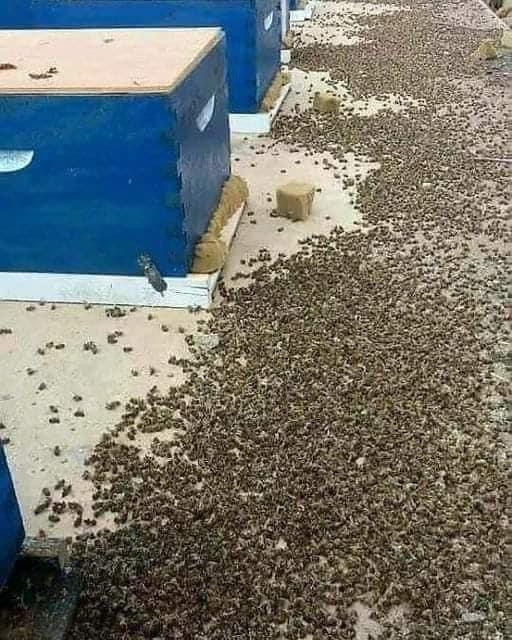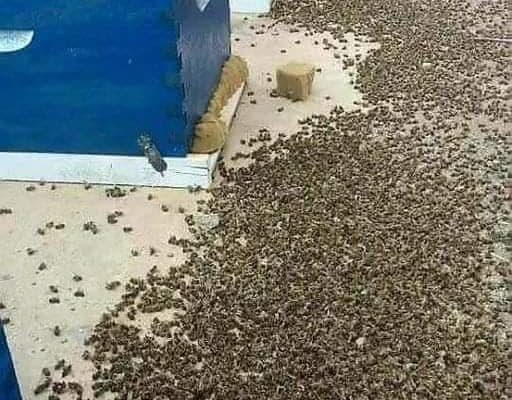Imagine a post filled with adorable cats and dogs; it would surely garner much attention and share. Sadly, this post is about something far more critical: the alarming decline of bee populations due to pesticide use. Thousands of bees are dying, signaling a dire warning for our planet’s future. If bees vanish, humanity may only have four years left to survive.
Bees are crucial to our ecosystem and daily lives. Their pollination efforts are vital for plant reproduction, which in turn supports food chains worldwide. The Earthwatch Institute has declared bees the most important living beings on the planet, highlighting their critical role in agriculture and the environment. Unfortunately, bees are now at high risk of extinction.
Albert Einstein famously warned that if bees disappear, humanity would only survive for a few more years. Recent studies show that bee populations have decreased by up to 90% in some regions. This dramatic decline is caused by several factors, including deforestation, lack of nesting places, fewer flowers, uncontrolled pesticide use, soil changes, and a dwindling number of beekeepers.
Bees are responsible for over 70% of global agriculture. Without them, the production of numerous crops would plummet, leading to food shortages and the collapse of ecosystems dependent on plant pollination. This would have devastating effects on both flora and fauna, causing a cascade of extinctions across the animal kingdom.

Despite the grim outlook, there are solutions to save bees, though they are challenging to implement. Specialists propose several measures to address this crisis:
- Ban Toxic Pesticides: Not just reduce, but entirely ban pesticides harmful to bees. Switch to safer alternatives that do not impact pollinators negatively.
- Promote Natural Agriculture: Encourage agricultural practices that are entirely natural and bee-friendly.
- Research and Monitoring: Conduct ongoing research and monitor bee health and conservation efforts to ensure their well-being.
- Support Beekeepers: Implement programs that allow people to support beekeepers directly. Initiatives like “Adopt a Hive” encourage public participation in saving bees by buying natural honey and engaging in national projects.
The disappearance of bees is not just an environmental issue but a threat to human survival. The interconnectedness of our ecosystems means that the loss of bees would trigger a chain reaction, ultimately affecting all life on Earth.
By raising awareness and taking immediate action, we can work towards a future where bees thrive. It is crucial to support and implement solutions to halt their decline. Saving bees means preserving our planet and ensuring a sustainable future for generations to come.



